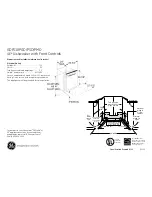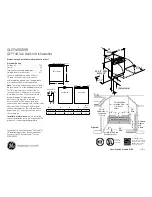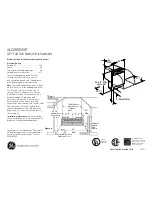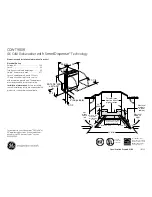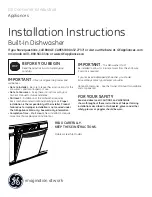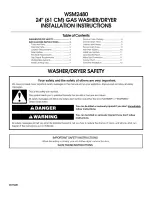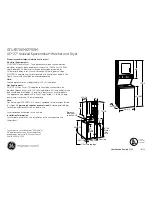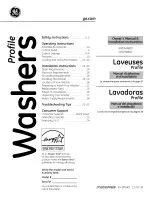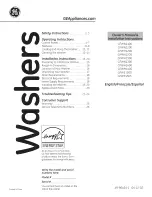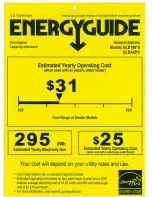
Technical safety
~
Before setting up the appliance,
check it for any externally visible
damage. Under no circumstances
should you use a damaged appliance.
A damaged appliance could be
dangerous.
~
The dishwasher must only be
plugged into the electricity supply via a
suitable switched socket. The electrical
socket must be easily accessible after
the dishwasher has been installed so
that it can be disconnected from the
electricity supply at any time. (See
"Electrical connection").
~
There must be no electrical sockets
behind the dishwasher. Danger of
overheating and fire risk if the
dishwasher were to be pushed up
against a plug.
~
The dishwasher must not be
installed under a hob. The high radiant
temperatures which are sometimes
generated by a hob could damage the
dishwasher. For the same reason it
should not be installed next to open
fires or other appliances which give off
heat, such as heaters etc.
~
Do not connect the dishwasher to
the mains supply until it has been fully
installed.
~
Before connecting the appliance,
check that the connection data on the
data plate (voltage and connected
load) match the mains electricity
supply. If in any doubt, consult a
qualified electrician.
~
The electrical safety of this
appliance can only be guaranteed
when continuity is complete between it
and an effective earthing system. It is
most important that this basic safety
requirement is present and regularly
tested and where there is any doubt the
electrical system in the house should
be checked by a qualified electrician.
The manufacturer cannot be held liable
for the consequences of an inadequate
earthing system (e.g. electric shock).
~
Do not connect the appliance to the
mains electricity supply by a
multi-socket unit or an extension lead.
These do not guarantee the required
safety of the appliance (e.g. danger of
overheating).
Warning and Safety instructions
8
Summary of Contents for G 1202
Page 65: ...65 ...
Page 66: ...66 ...
Page 67: ...67 ...
Page 68: ...Alteration rights reserved G1202 0509 M Nr 07 502 130 00 ...
























